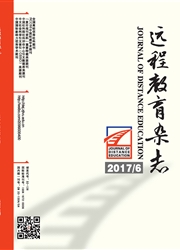

 中文摘要:
中文摘要:
构建有效的教育游戏设计模型是当前亟待研究的课题。在国内外心流理论和教育游戏设计相关成果的基础上,使用基于设计的研究方法,构建了基于心流理论的教育游戏设计框架。继而分析了该设计框架的构成要素及其设计方法,并基于该研究框架研发了特殊儿童言语学习游戏案例且进行了实证研究。研究发现,学习者在教育游戏中产生心流体验的前提条件有三个:清晰的任务目标、及时的反馈和任务与技能的平衡。为生成以上前提条件,教育游戏设计应分为四个阶段:游戏目标分析、游戏情境创设、游戏玩法设计和游戏元素设计,每个阶段应采取对应的设计任务使阶段性设计成果具备心流体验产生的条件。
 英文摘要:
英文摘要:
Constructing an effective design model of educational games is an urgent and important research topic. Based on the relative results about flow theories and design of educational games at home and abroad, a design framework of educational games based on the flow theory is constructed by using the design-basedresearch method.Then after analyzing the elements of the design framework and its design methods, speech learning games for exceptional children are developed based on the above-mentioned framework and verified experimentally. The results show that there are three preconditions for generating flow experiences when learners acquire knowledge by means of the educational games, including clear task and target, immediate feedback, and the balance of task and skills of learners. For generating above-mentioned preconditions, the design of educational games should be divided into four phases, which includes the analysis of games target, situation creation of games, methods for game play design and elements design of games. And in each phase, the corresponding design task should be adopted to make the preconditions of generating flow experiences embedded in the results of design.
 同期刊论文项目
同期刊论文项目
 同项目期刊论文
同项目期刊论文
 期刊信息
期刊信息
